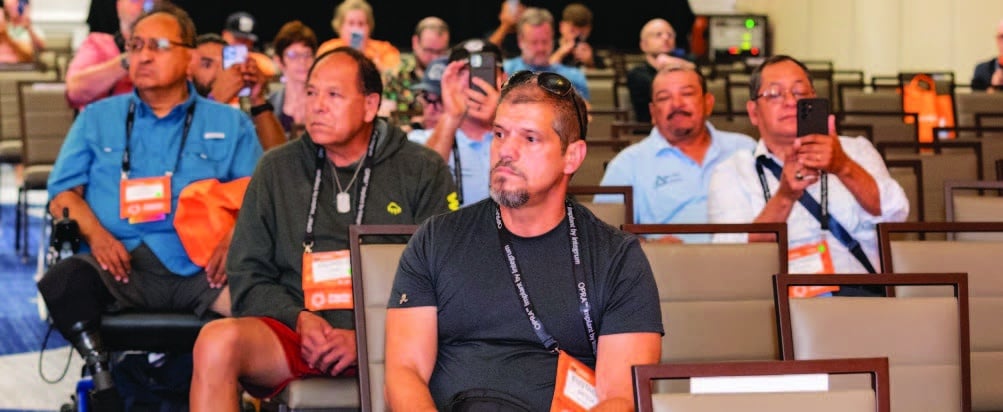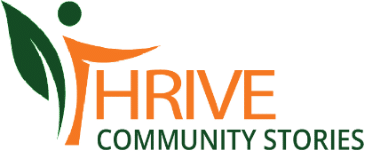The Power of Sharing Personal Experiences
By Shannon Williams, Digital Media and Graphic Design Specialist

Storytelling is a powerful tool that has been used for centuries to educate, inspire, and connect people. Stories have the ability to transport us to different worlds, evoke emotions, and create meaningful connections. In the context of amputees, storytelling becomes even more important as it provides a platform for individuals to share their personal experiences, challenges, and triumphs. By empowering amputees to become storytellers, we can build the next generation of individuals who can inspire others and create a more inclusive and understanding society.
Imagine the story of Sarah, a young amputee who lost her leg due to a congenital condition. For a long time, Sarah struggled with feelings of isolation and self-doubt. However, when she discovered the power of storytelling, everything changed. She began sharing her journey openly, discussing the emotional and physical challenges she faced and the strategies she developed to overcome them. As she shared her experiences, Sarah realized that her stories were not only empowering herself but also resonating with others, both amputees and those who had never experienced limb loss.
Sarah’s personal experience highlights the transformative power of sharing stories as an amputee. When individuals like Sarah open up about their challenges, fears, and triumphs, they not only find healing and empowerment but also create opportunities for others to learn, empathize, and connect. Personal narratives have the potential to break down barriers, challenge stereotypes, and foster a more inclusive society.
One of the key benefits of sharing personal experiences as an amputee is the opportunity to educate and raise awareness. By telling their stories, amputees can provide insights into the unique challenges they face, the importance of accessibility, and the need for societal support. These stories have the power to reshape perceptions and promote understanding, ultimately leading to more inclusive communities.
Furthermore, storytelling allows amputees to inspire others facing similar circumstances. Through their narratives, they can share strategies for overcoming obstacles, adapting to new situations, and embracing life with resilience and positivity. This inspiration can have a profound impact on individuals navigating the complexities of limb loss, giving them hope, encouragement, and the belief that they can live fulfilling lives despite their challenges.

Storytelling also plays a crucial role in building empathy. When we listen to personal stories, we are invited into someone else’s world, gaining insight into their experiences, emotions, and perspectives. This fosters understanding and compassion, allowing us to see beyond physical differences and connect on a deeper level. By sharing their stories, amputees can bridge the gap between the amputee community and society at large, promoting empathy and dismantling misconceptions.
In today’s digital age, there are various platforms available for amputees to share their stories and create a ripple effect of positive change. Social media, personal blogs, podcasts, and community events offer avenues for individuals to amplify their voices and reach a wider audience. Collaborative initiatives and support groups also provide spaces for amputees to connect, share experiences, and collectively advocate for change. To empower the next generation of storytellers, it is crucial to provide resources and support for amputees to develop their storytelling skills. Workshops, mentorship programs, and writing competitions focused on personal narratives can nurture their abilities to craft compelling stories that engage, inspire, and create impact. By honing their storytelling skills, amputees can become powerful advocates, influencing public discourse and promoting inclusivity.
In conclusion, building the next generation of storytellers among amputees is a vital step toward creating a more inclusive society. By sharing personal experiences, amputees have the opportunity to educate, inspire, and foster empathy among others. Through storytelling, amputees can challenge stereotypes, and raise awareness to future amputees.
ARE YOU A HEALTHCARE PROVIDER IN ORTHOTICS OR PROSTHETICS LOOKING TO OBTAIN CONTINUING EDUCATION CREDITS?
Join Hanger Clinic at the Amputee Coalition 2023 National Coalition for a walk-through of the latest research and evidence through presentations, case reviews and a panel discussion with top experts in the field of prosthetic rehabilitation. The training will take place from 1:00-5:00pm on Tuesday, Aug. 1, at the Renaissance Orlando at SeaWorld®. Pre-registration is required.
While much of the historical evidence in lower limb prosthetic rehabilitation has relied upon smaller studies conducted among younger, traumatic amputations, in today’s rehabilitation environments the predominant presentation is that of the older diabetic/dysvascular amputee.
Drawing upon a series of recent large-scale, peer-reviewed, multi-site, retrospective publications, this course will challenge conventional assumptions related to anticipated prosthetic mobility in older diabetic/dysvascular amputees and speak to the impact of component selection in enhancing prosthetic mobility and mitigating fall risk in this population. The impact of comorbid health conditions on prosthetic potential will also be discussed.
This course is designed for physical therapists, occupational therapists, nurses, case managers, and other healthcare professionals with mid-advanced level experience in providing care for this patient population. Whether you have just started or are an expert in caring for this patient population, this course will have something for everyone. 3.5 Pre-Approved Continuing Education Credits available for the below professionals:
- PT, PTA
- OT, OTA
- RN
- Case Managers
Physicians (all others) will receive a Certificate of Course Completion to submit to their licensing board. Credits will be available through Hanger Clinic’s Continuing Education Accreditation Program. Cost: $50 Standard Registration; $25 Student Registration Learn more at https://hangerclinic.com/events/professional-events/hanger-clinic-ce-program-at-amputee-coalition-conference-2023/.

